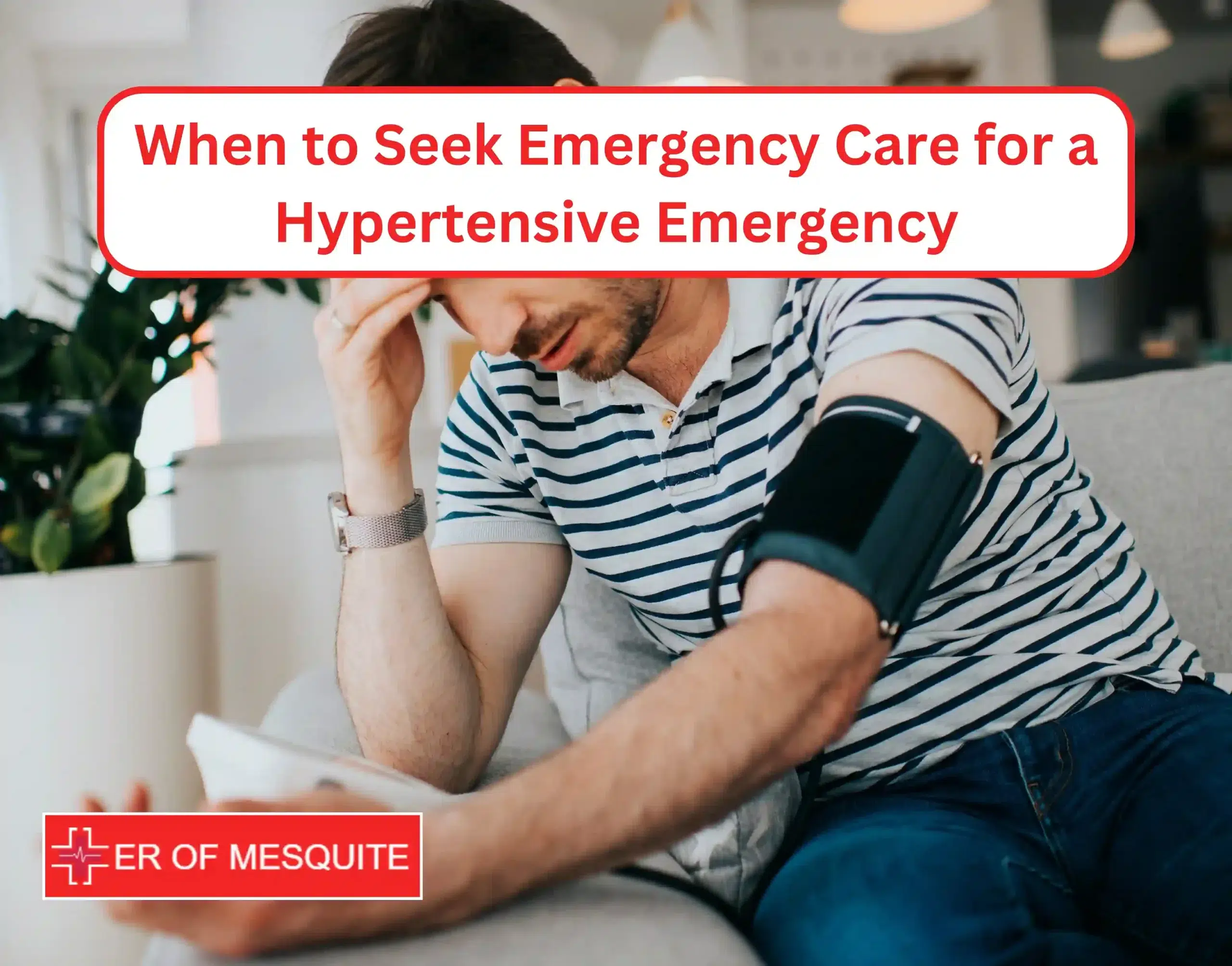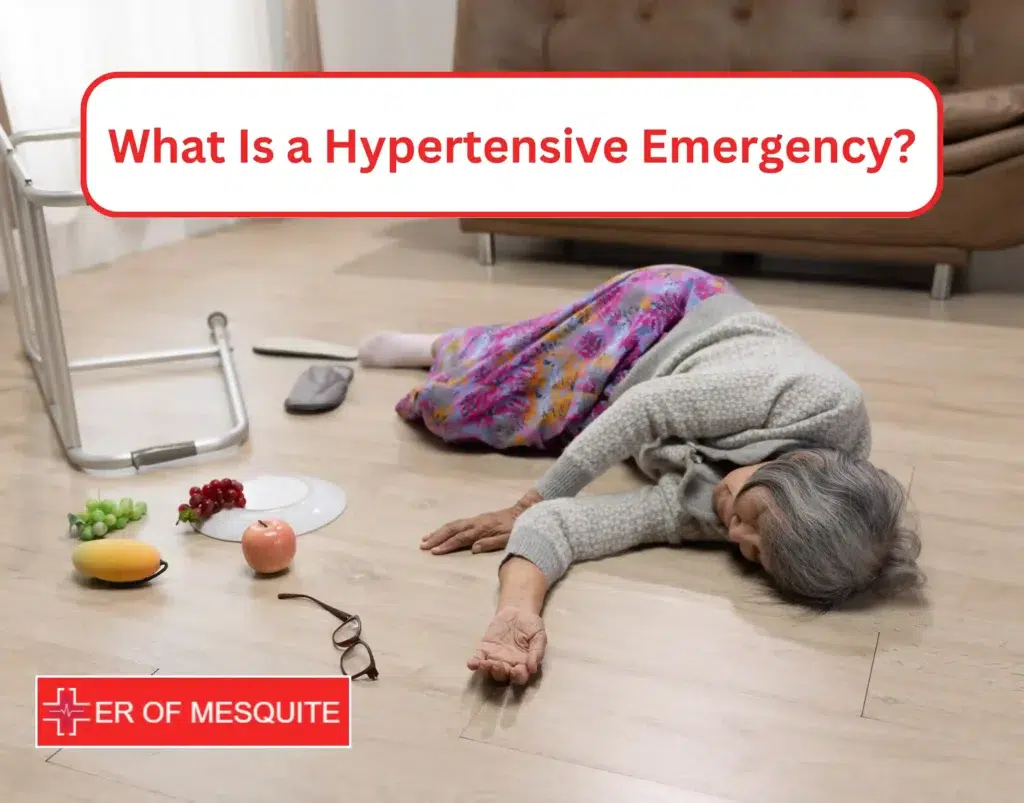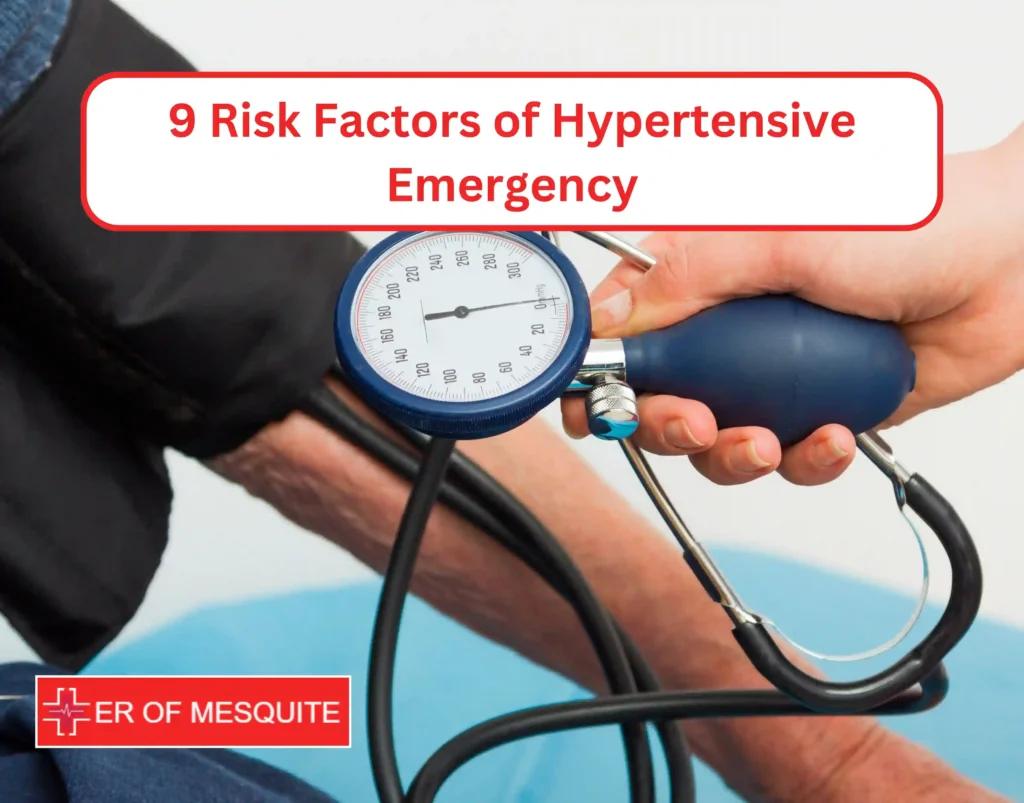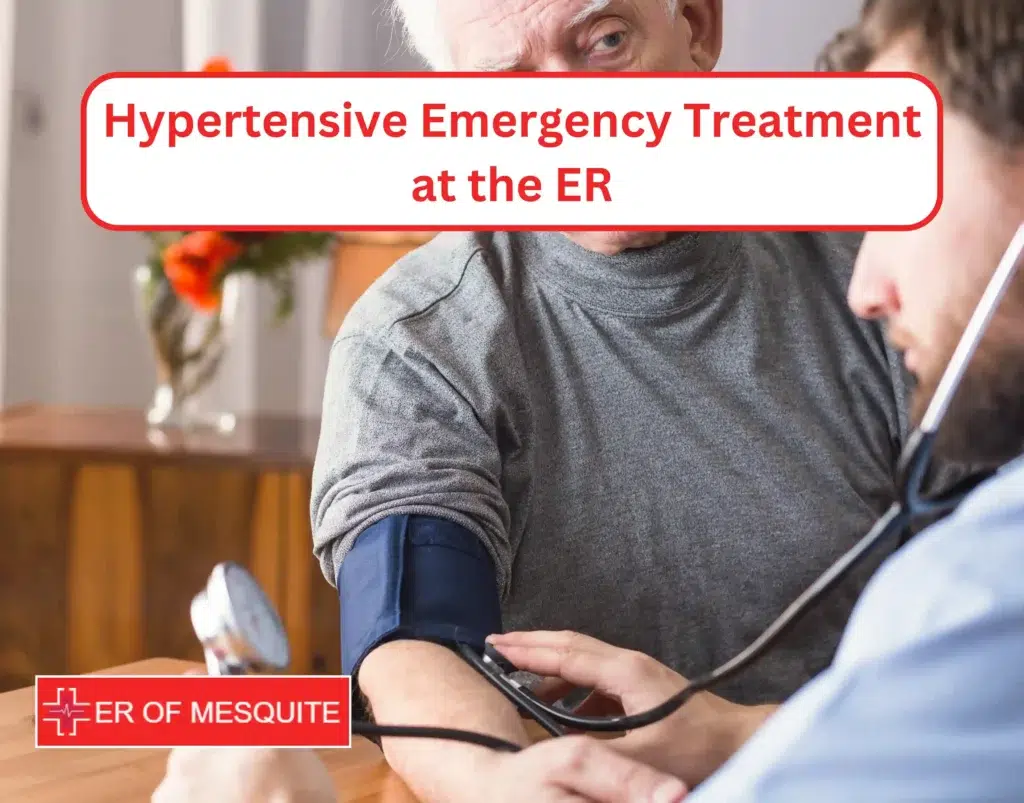Hypertension silently affects nearly one billion people worldwide, claiming over 7 million lives every year1. But the dangerous reality is many don’t discover their high blood pressure until it causes organ damage.
If you’ve got high blood pressure, heart or kidney issues, or live an unhealthy lifestyle, you’re at a higher risk of a hypertensive emergency. That’s when your blood pressure spikes to dangerous levels.
Let’s explore the early signs and risk factors of a hypertensive emergency, so you don’t get caught off guard. By the end of this guide, you’ll be confident to know when to make the right call.
What Is a Hypertensive Emergency?
Hypertensive emergency is a case of blood pressure spike to emergency levels, potentially causing organ damage. To understand it better, let’s break down what normal blood pressure is and what counts as a hypertension medical emergency.
Blood pressure reading shows two numbers:
- Systolic (Top Number): The pressure when your heart pumps blood
- Diastolic (Bottom Number): The pressure when your heart rests between beats
Normal blood pressure stays below 120/80 mmHg, while hypertension starts at 130-140 mmHg (systolic) or 80-90 mmHg (diastolic).
Warning: If your blood pressure hits 180/120 mmHg or higher, it’s a hypertensive emergency that requires immediate medical attention.
Complications of a Hypertensive Emergency
If the patient is not taken to emergency immediately, an htn emergency can lead to:
- Stroke
- Heart attack
- Kidney failure
- Aortic dissection (tears in the artery wall)
- Organ damage
- Death
Hypertensive Urgency vs. Hypertensive Emergency
Not every spike in blood pressure is a full-blown emergency. Hypertensive urgency is a similar situation but not as critical. Let’s compare the two:
| Hypertensive Emergency | Hypertensive Urgency |
| Blood pressure is sky-high, causing damage to vital organs | Blood pressure is high, but there’s no organ damage |
| Symptoms | |
| Chest pain, shortness of breath, sudden changes in vision or speech | Mild like headaches or flushed skin |
Hypertension: When to Go to the Emergency Room
Hypersensitive emergency indicates itself with few symptoms:
- Severe headaches
- Chest pain
- Blurred vision or sudden vision loss
- Trouble breathing
- Swelling or edema (fluid buildup in the tissues)
- Confusion or difficulty speaking
- Seizures
- High blood pressure during pregnancy
If any of these hit close to home, stop second-guessing and get to the Mesquite ER for hypertensive emergency treatment.
9 Risk Factors of Hypertensive Emergency
People with the following conditions and risk factors are more likely to experience a hypertensive emergency:
1. Uncontrolled Hypertension
People who are irresponsible in managing their high blood pressure, and skip their hypertension medicines are likely at risk of a hypertensive emergency. If blood pressure stays high for too long, it causes damage to the blood vessels and organs and calls for a hypertensive emergency.
2. Heart Disease or Kidney Problems
The risk of hypertensive emergencies increases as heart and kidney function declines.
3. Diabetic Patients
Diabetes often goes hand-in-hand with hypertension, and the combination can increase the risk of a hypertension medical emergency. Both high blood sugar and high blood pressure combine to cause vascular damage dangerously increasing blood pressure.
4. Older Adults
Blood vessels harden as you age which increases the risk of high blood pressure. Therefore hypertensive emergencies are common in people above age 60.
5. Smokers and Heavy Drinkers
Smoking and excessive alcohol intake can damage blood vessels, raise blood pressure, and set the stage for heart disease. All of that increases your chances of a hypertensive emergency.
6. Poor Lifestyle Habits
A poor diet (high in sodium and low in potassium), lack of exercise, high levels of stress, and obesity are risk factors for high blood pressure. If it remains the same for years, these factors increase the chances of a hypertensive emergency.
7. Certain Medications
Birth control pills, steroids, or certain over-the-counter pain relievers, cause hypertension, and people on them are at risk of hypertensive emergencies.
8. Pregnant Women (Preeclampsia)
Preeclampsia, a pregnancy-related condition, can cause a dangerous spike in blood pressure. If left untreated, it can lead to a hypertensive emergency, putting both mother and baby at risk.
9. Family History of Hypertension
If hypertension runs in the family, you may be genetically predisposed to high blood pressure, which increases your risk of a hypertensive emergency.
Regular blood pressure monitoring, healthy lifestyle choices, and timely medical treatment can lower your chances of things going sideways.
Hypertensive Emergency Treatment at the ER
When patients face a hypertensive emergency, they’re admitted to the ICU for urgent care. Here’s what typically happens:
- Continuous Monitoring: The doctors continuously monitor your blood pressure using advanced equipment to track any changes in real-time.
- Intravenous Medications: The medical team administers fast-acting intravenous (IV) medications to control blood pressure.
- Controlled Blood Pressure Reduction: The goal is to gradually lower the mean arterial pressure (MAP) by about 20–25% within the first 1–2 hours. Over the next 2–6 hours, the doctors lower blood pressure to about 160/100–110 mm Hg. Dropping blood pressure too quickly can cut off blood flow to vital organs. So this step-by-step approach helps keep blood flow steady and reduces the risk of stroke, heart attack, or kidney failure.
Final Thoughts
We hear stories like I waited too long to get help, and now I have kidney damage. Don’t let that be your story. When those hypertensive emergency warning signs hit, be lucky to go to the emergency room in time. A little action at the right time can prevent you from a lifelong disability.
Cutting back on salt does not suffice at all. If you’ve hypertension, regular visits to the emergency room are worth the risk. Even if you are healthy, get occasional checkups to keep things in check.
FAQs
1. Can stress cause a hypertensive emergency?
While stress can temporarily raise your blood pressure, a hypertensive emergency is usually due to long-term, uncontrolled high blood pressure or other medical conditions. That’s why regular check-ups and managing stress are key.
2. Can Too Much Sodium Lead to a Hypertensive Emergency?
Yes, consuming too much sodium (salt) can significantly raise your blood pressure and increase the risk of a hypertensive emergency. To lower your risk, reduce salt in your diet and balance it with potassium-rich foods like bananas, spinach, and oranges. It’ll help regulate blood pressure



